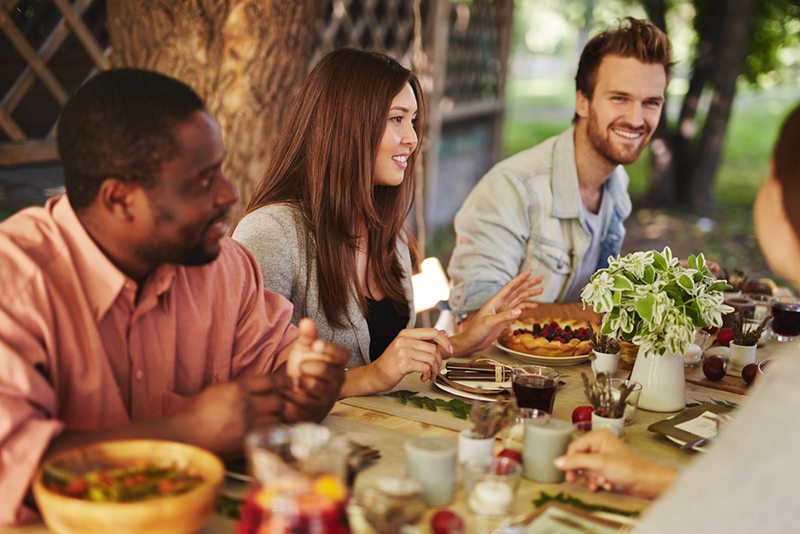
Holidays can be one of the more stressful times of the year and getting through all the shopping, food preparation, festive gatherings and gift giving can be exhausting to say the least. Things will go more smoothly if you’re well-informed and have a plan. The practical tips below should give you a head start on a healthy and happy holiday season.
Keep an Eye on Your Health
- Exercise is a good idea not only to combat those extra calories you’ll be ingesting, but for your overall peace of mind as well. Chances are you’ll sleep better too.
- Make a to-do-list and delegate what you can. Children love to decorate and trim
the tree. Baking cookies to deliver to friends and neighbors? Little hands can help! If you don’t have elves underfoot, consider getting together with friends for a group task such as trimming the tree, wrapping gifts or addressing holiday cards. - Feeling stressed out and harried? Try this simple relaxation trick five times to calm your nerves: breathe in deeply to “smell the flower”, then exhale slowly to “blow out the candle”. This technique is also helpful in calming overstimulated children!
Whip Up Something Wonderful
Food is a cornerstone of any holiday gathering. The following tips from the USDA’s Food Safety and Inspection Service should keep you healthy and well-fed:
- Cook all poultry to a minimum internal temperature of 160 degrees.
- Discard all foods which have been sitting at room temperature for longer than two hours.
- To avoid the growth of bacteria, keep hot foods at 140 degrees or warmer; cold foods should be kept at 40 degrees or colder (putting dishes in bowls of ice can help with cooling).
- Always wash hands and utensils after handling food and remember not to serve anything on unwashed plates which have previously held raw meats.
- Always defrost foods in the refrigerator as opposed to the counter top.
For additional cooking questions, consider calling the USDA’s Meat and Poultry Hotline at 1-888-MPHotline. Services are offered on the weekend and in Spanish.
Stay True to Your Budget
According to the American Psychological Association, money worries and the pressures of gift giving are the top cause of holiday stress. Here are some things you can do to minimize anxiety:
- Consider using cash so as not to overspend. Sometimes a visual confirmation of how much you’re paying can help you stay on budget.

- If you have a smart phone, consider downloading a price comparison app. No longer will you have to wonder if the price advertised is a good one; now you’ll know for sure if you’re getting a deal. Check out the app store for your device for the latest.
- Decide beforehand what you want to purchase and how much you can afford. If you have a solid list, you’ll be less tempted by last-minute or point-of-sale items.
- Look for bargains online, but check shipping charges carefully. Sometimes a big sale can be less impressive once you factor in shipping fees.
- If you’re purchasing gifts for young children, check product safety recalls before you shop. The Washington State Department of Early Learning has a convenient web site where you can view recent product recalls.
Eat, Drink and Be Merry!
- Eat sensibly. The American Heart Association suggests eschewing party appetizers that are fried, buttery or loaded with cheese in favor of fruits, veggies and whole-grain crackers.
- Be conscious of not overdoing the eggnog. The holidays are a time of excess and alcohol is no exception. If you’ll be attending a holiday party where drinks will be served, be sure to have a backup plan for getting home in the event you consume more than you had intended. The National Safety Commission (NSC) suggests having a small drink at the beginning of the evening so that the alcohol will have time to metabolize before you drive home. (Contrary to popular belief, coffee will not speed up the process or help you regain sobriety any faster.) Remember that a 12-oz can of beer contains as much alcohol as 6-oz of wine or 1.5 shots of whisky.
- Be a thoughtful host. If you plan to throw your own holiday party, remember that you are responsible for the safety of your guests. The NSC cautions that if one of your party-goers leaves your home and is involved in an alcohol-related collision, you could potentially be liable.

